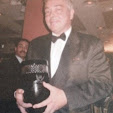I.
Statement of Purpose:
“ Too often we are bogged down in theoretical disputes when
the only way we can answer those questions is in practice, in political
experimentation, in action. The concept of practical-critical activity (i.e.
, praxis) is three-sided: we must act,
then reflect upon the activity, and then finally criticize the activity. The
process of action, reflection, and criticism must be repeated again and again.
The body of knowledge, ever-changing and ever-expanding, that grows from this
process emerges as an ideology.”[1]
Carl Davidson, former president, Students for a Democratic
Society
While there are a number of books and
studies on the effects of the digital revolution on society at large, to date, there
has been no definitive study to date on the impact of digital technology on the
genre of documentary. Since the power of visual media is almost
universally acknowledged, and since documentary is in a state of such rapid
flux, it is hoped that this study will be of both relevance and interest to
institutions, cinematic scholars and documentary practitioners around the world
as they seek to cope with the challenges of digital technology.
Please also note that there are already
a few excellent books on traditional documentary production techniques on the
market today; Alan Rosenthal’s “ Writing,
Directing and Producing Documentary Films and Videos” [2]
and Michael Rabiger’s “Directing the
Documentary”[3]
are particularly recommended.
They represent what might be called Old School Documentary Production.
There are also several books on New
School Documentary Production. One of the best of these is Michael
Rosenblum’s “i-Phone Millionaire – How to
Shoot and Sell Cutting Edge Video”.[4]
Another book in a similar vein is Stephen Voltz and Fritz Grobe’s “The Viral Video Manifesto – How Everything
You Know is Wrong and How to do What Really Works.”[5]
Statement of Purpose:
The goal of this thesis is to assess the immediate practical
and aesthetic effects of digital technology on Documentary Film , and to show
how the genre of Documentary Film has
been transformed into a new hybrid media genre of Multimedia we shall call
Digital Documentary.
In the process, this thesis shall attempt to show the
aesthetic conventions shared by both genres of documentary, and to create an
operational definition of documentary based on those conventions that might be
valid for both the documentary film and digital documentary genres.
By helping to clarify both distinctions and similarities,
this thesis seeks :
1)
To help
administrators and decision makers better understand the phenomenon popularly
known as The Digital Revolution.
2)
To help educators
understand that what is called The Digital Divide is a new reality which can only be accepted, rather than
feared.
3)
To help multimedia
artists interested in documentary to appreciate how the Documentary Film
Tradition might be relevant to their work. [6]
4)
To encourage the
development of capacity building in the craft of documentary in the developing
world, so the people all around the world have the opportunity for
self-expression in Multimedia.
5)
To encourage the
democratization of information media by the growth of grassroots Digital
Documentary Magazines, which we shall call Digital Newsreel.
Chapter III will attempt to place Digital Documentary in the macro context
of
the Politics
of International Mass Communications and The Evolution of Digital Multimedia.
In the wake of the decolonization of the 1960’s, there were many heads of
government and other administrators who objected to what they saw as Western
domination of global media, and they demanded what they termed The New World Information Order, a more equitable
redistribution of global media resources.
Two decades later, they got a bit more
than they had bargained for.
[1]
Carl Davidson, (Introduction: Toward a
Revolutionary Praxis from Toby
Mussman’s critical anthology Jean Luc Godard) E.P. Dutton, 1968, p.
11
[2]
Alan Rosenthal ( Writing, Directing and
Producing Documentary Films and Videos)Third Edition, Southern Illinois
University Press, 2002
[3]
Michael Rabiger (Directing the
Documentary)Focal Press, 2004
[4] Michael Rosenblum ( i-Phone Millionaire- How to Shoot and Sell Cutting Edge Video ) Basic
Books, 2013
[5]
Stephen Voltoz and Frtiz Grobe ( The
Viral Video Manifesto – Why Everything You Know is Wrong and How to Do What Really Works.) McGraw Hill, 2013
[6] Since
an unfortunate byproduct of the speed of the Digital Revolution has been a
tendency to forget all historical precedent, a secondary goal of this
dissertation is to discover elements in the analog documentary film tradition
that might be of particular relevance to the new digital documentary.

No comments:
Post a Comment